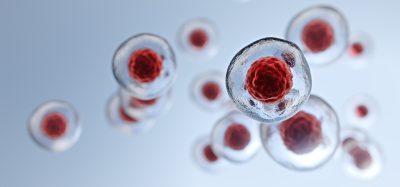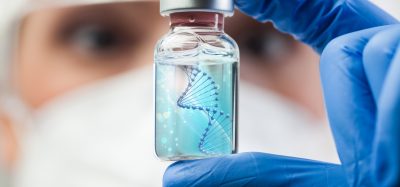Researchers turn stem cells into mini-kidneys
Posted: 8 October 2015 | Victoria White
The breakthrough could allow the use of mini-organs to screen drugs either for the treatment of kidney disease or to find out if a new drug is likely to injure the kidney…


Researchers have perfected a method of turning stem cells into mini-kidneys.


Image of a mini-kidney formed in a dish from human induced pluripotent stem cells. The three colours show the presence of distinct cell types within the developing nephrons. CREDIT: Minoru Takasato
Professor Melissa Little and her team from Murdoch Childrens Research Institute first grew a mini-kidney in a dish in 2013 and were able to form two key cell types. Now the team have reported that they are able to grow an organ that forms all the different cell types normally present in the human kidney.
By adding different concentrations of growth factors at various times, researchers were able to guide the formation of the mini organ in a process that mimicked normal development. The mini-kidney the team produced is similar to the kidney of embryo developing foetus.
Biomarkers aren’t just supporting drug discovery – they’re driving it
FREE market report
From smarter trials to faster insights, this report unpacks the science, strategy and real-world impact behind the next generation of precision therapies.
What you’ll unlock:
- How biomarkers are guiding dose selection and early efficacy decisions in complex trials
- Why multi-omics, liquid biopsy and digital tools are redefining the discovery process
- What makes lab data regulatory-ready and why alignment matters from day one
Explore how biomarkers are shaping early drug development
Access the full report – it’s free!
Researchers say the advancement will also mean they can now tweak this process to optimise the amount of each cell type present.
The breakthrough could allow the use of mini-organs to screen drugs either for the treatment of kidney disease or to find out if a new drug is likely to injure the kidney.
Researchers can now make a miniature model kidney from any person
“The mini-kidney we have been able to grow is very complex and more like the real organ. This is important for drug testing as we hope they will respond to the drugs as a normal organ might,” Professor Little said. “Creating a model kidney containing many different kidney cell types also opens the door for cell therapy and even bioengineering of replacement kidneys. One day this may mean new treatments for patients with kidney failure.”
Importantly, the new method means researchers can make a miniature model kidney from any person, starting with cells such as skin or blood.
“Making stem cells from patients with kidney disease, and then growing a mini-kidney that matches the patient, will help us understand that patient’s disease and develop treatments for them.”
Related topics
Bioengineering, Stem Cells
Related conditions
Kidney disease







